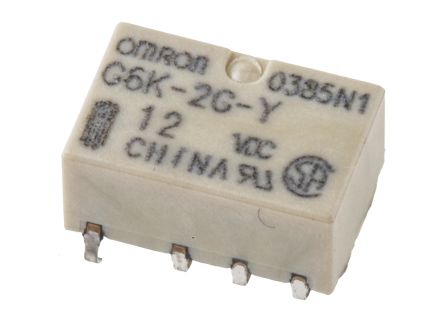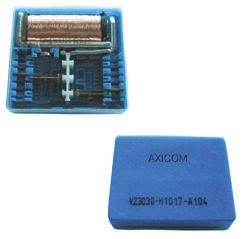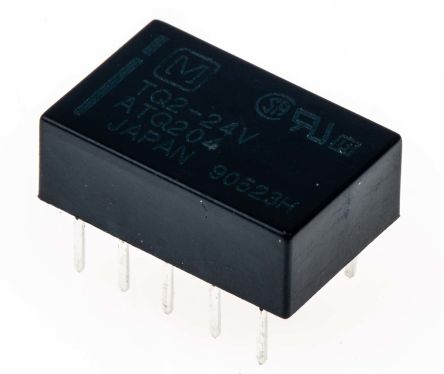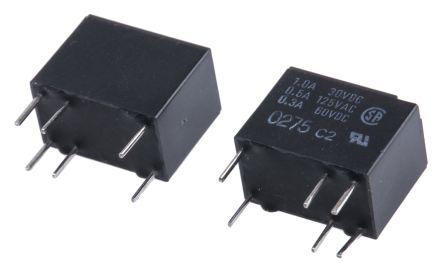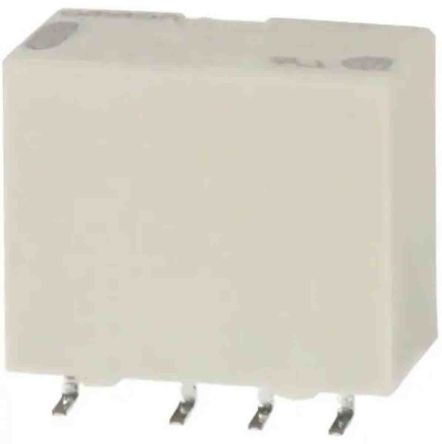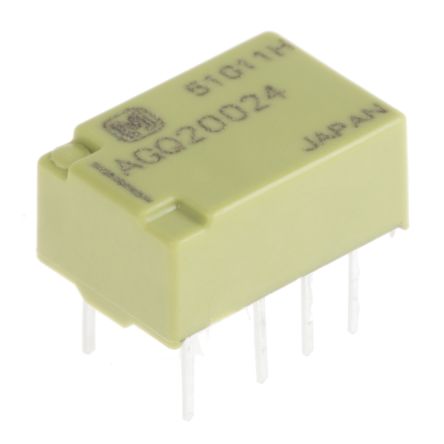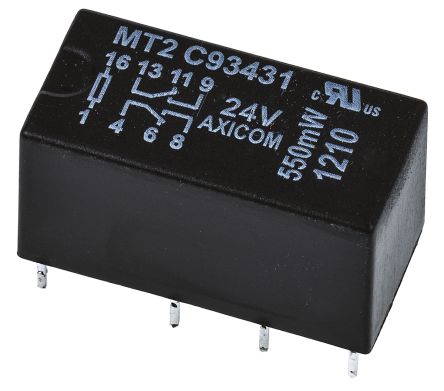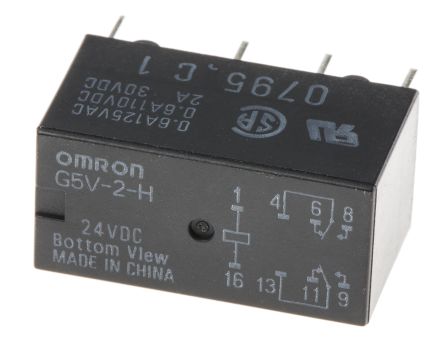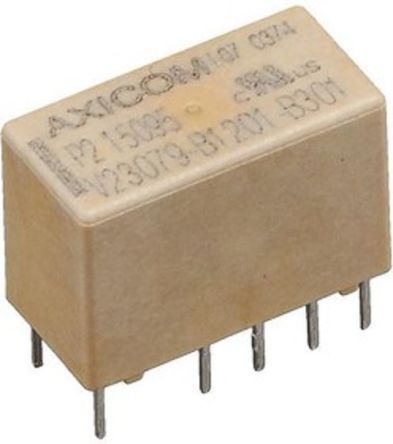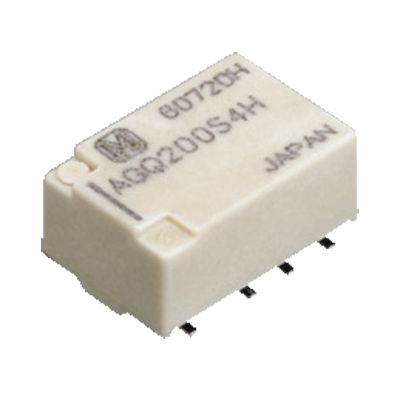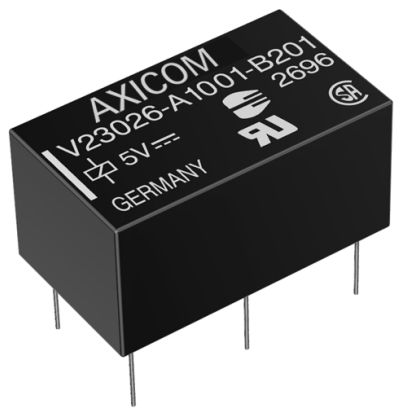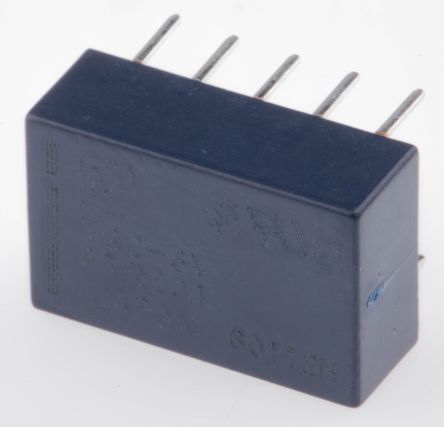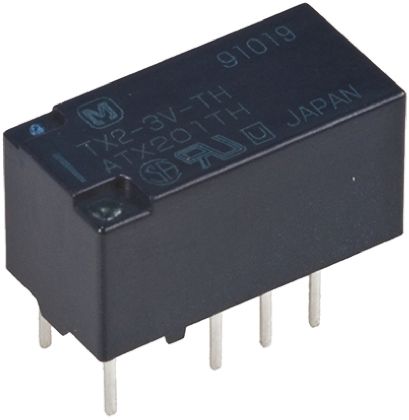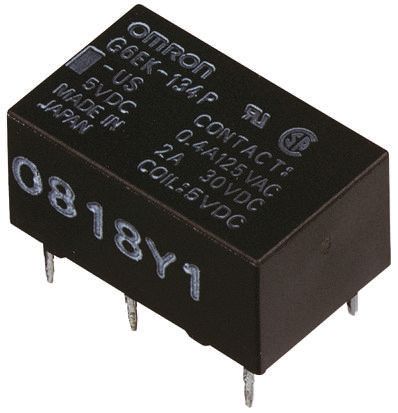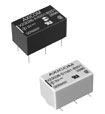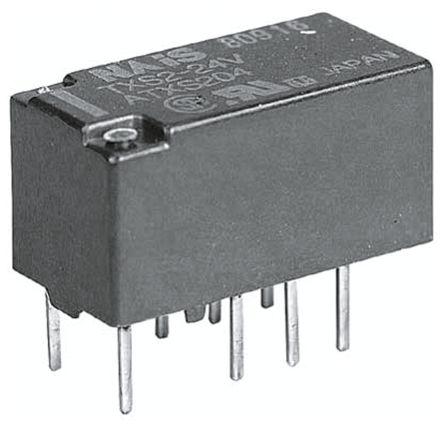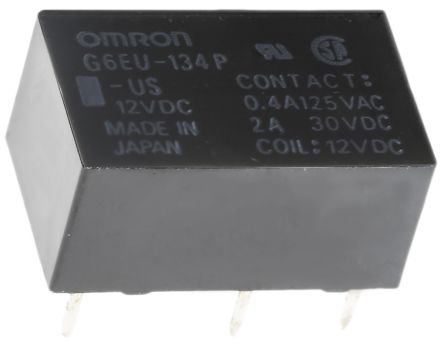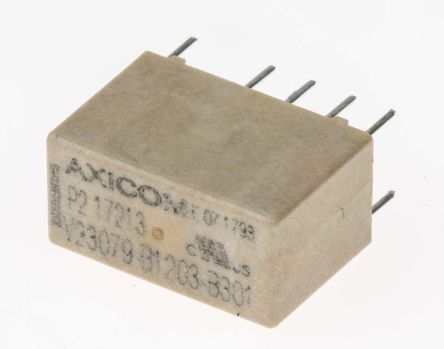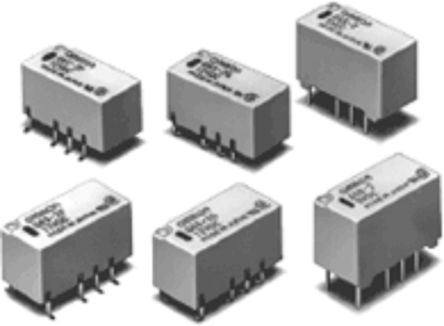- Automation & Control Gear
- Cables & Wires
- Enclosures & Server Racks
- Fuses & Circuit Breakers
- HVAC, Fans & Thermal Management
- Lighting
- Relays & Signal Conditioning
- Switches
- Batteries & Chargers
- Connectors
- Displays & Optoelectronics
- ESD Control, Cleanroom & PCB Prototyping
- Passive Components
- Power Supplies & Transformers
- Raspberry Pi, Arduino, ROCK, STEM Education & Development Tools
- Semiconductors
Signal Relays
Signal relays are a type of electrically operated mechanical switch. They are operated by electrical impulses with the primary function to open and close a circuit. Relays can also be referred to as industrial switches. There are 2 main types of relay category available, latching and non–latching relays.
Relays are used within PCBs for switching purposes. Signal relays are designed for low currents and low voltages. They can be used for up to 2A switching. Power relays are another type of relay which is suitable for high currents and voltages.
What is the difference between latching and non-latching relays?
Both types of relays in similar in design and function, however, a significant difference between them is that a latching relay will remain in the last position it when it was last powered, whereas a non-latching goes back to its normal position. This makes each more type of relay suitable for different applications.
How to choose a signal relay:
When choosing a relay, it is important to consider a number of specifications to ensure it is fit for purpose, some factors include:
- Coil voltage - the required voltage to actuate the switching mechanism. If a voltage is too high this could damage the components, if it is too low then it will not actuate
- Contact configuration - This is the state the contacts are in without power. For example SPST, single pole single throw
- Contact material - the relay contacts are available in many materials that have certain properties. Common materials are gold, silver, tin oxide and nickel
- Coil power - the amount of power (watts) the coil operates at. This must match the power in the circuit for correct function
- Coil resistance - the amount of resistance (ohms) in the circuit that the coil creates
